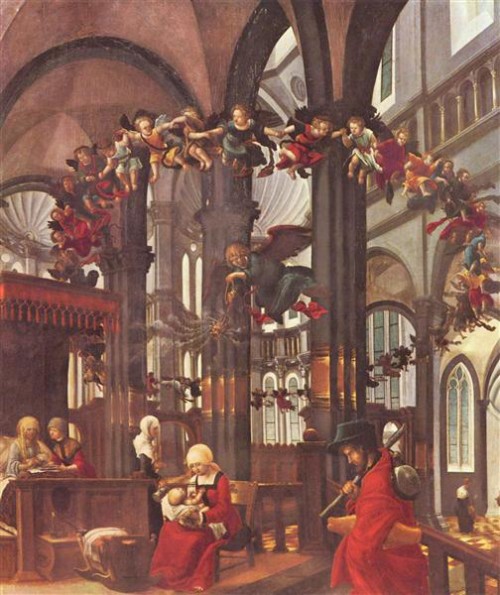 Nativity of the Blessed Virgin Mary
Nativity of the Blessed Virgin Mary
Image Courtesy: Meadowsweet
(Franciscan Media) The Church has celebrated Mary’s Birth since the end of the 7th century according to EWTN brought there by Eastern Monks. Gradually and in varied ways, it spread to other parts of the West in the centuries that followed.
From the 13th century on, the celebration assumed notable importance becoming a Solemnity with a major Octave and preceded by a Vigil calling for a Fast–the Octave was reduced to a simple one during the reform of Pope Saint Pius X (1903-1914) and was abolished altogether under the reform of Pope Pius XII (1939-1958)
The present calendar characterizes the ‘Birth of Mary’ as a Feast, placing it on the same plane as the Visitation of the Blessed Virgin Mary (Feast Day: 31 May) — For some centuries now, the birth has been assigned to the 08 September both in the East and West but in ancient times it was celebrated on different dates from place-to-place. However when the Feast of the Solemnity of the Immaculate Conception (Feast Day: 08 December) was extended to the whole Church, the Birth little-by-little became assigned everywhere to the 08 September, nine months after the Solemnity of the Immaculate Conception.
Scripture does not give an account of Mary’s Birth however the Protoevangelium of James fills in the gap. This work has no historical value but it does reflect the development of Christian faith. According to this account, Saint Anne and Saint Joachim are infertile but pray to God for a child and subsequently receive the promise of a child that will advance God’s plan of Salvation for the world. — Such a story (as many Biblical counterparts) stress the special presence of God in Mary’s life from the very beginning.
Saint Augustine connects the Blessed Virgin Mary’s Birth with Jesus’ saving work and describes it according to Catholic News Agency with cosmic and historic significance, an important prelude to the Birth of Jesus Christ.
“She is the flower of the field from whom bloomed
the precious lily of the valley.
Through her Birth the nature inherited
from our first parents is changed.”
The opening prayer at Mass speaks of the Birth of Mary’s Son as the dawn of our Salvation and asks for an increase of peace.
Related: For Today’s Most Holy Scripture Readings and More, Visit: -USCCB